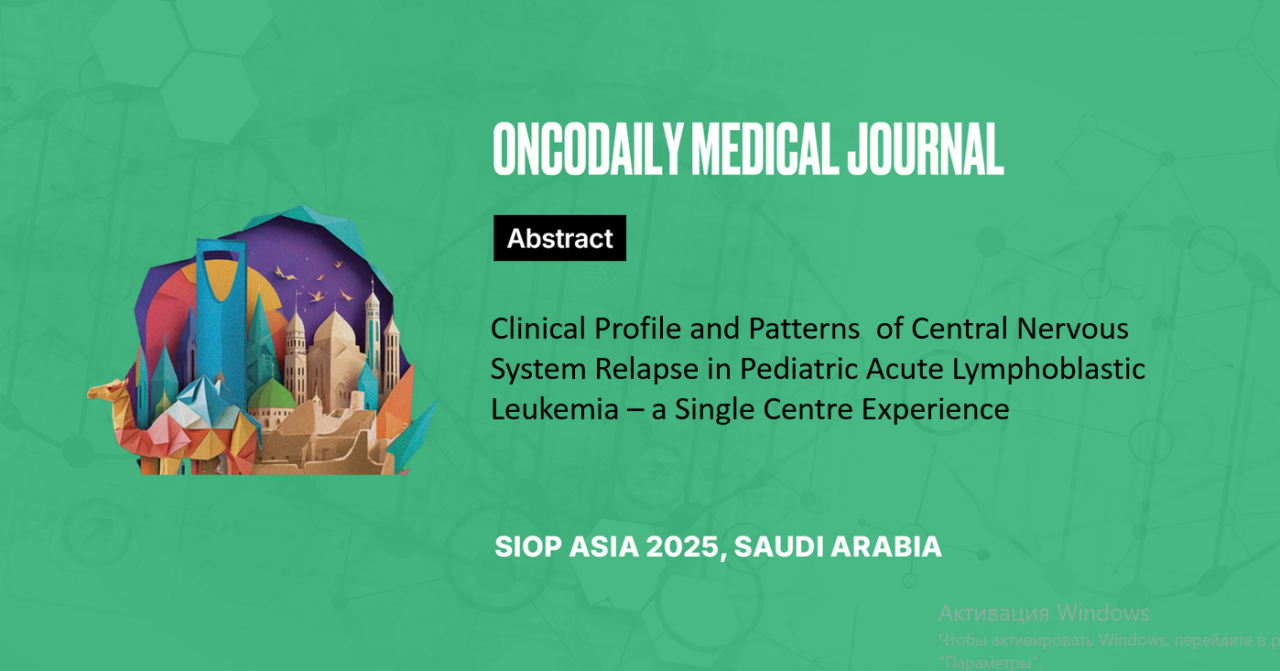Clinical Profile and Patterns of Central Nervous System Relapse in Pediatric Acute Lymphoblastic Leukemia: A Single Centre Experience
Abstract
Introduction: Contemporary Chemotherapy protocols globally have reduced Central Nervous System (CNS) relapses even while eliminating Cranial Radiation (CrRT) from first-line therapy. The introduction of ICiCLe-2014 in India similarly sought to restrict CrRT to only those with CNS involvement at presentation. We looked at CNS outcomes and associated factors in children with ALL treated on ICiCLe-2014 strategy between Apr 2018-Dec 2022, with follow-up records till Apr 2024.
Methodology: Children below 15-years old with newly-diagnosed ALL registered for treatment at our centre in the defined period were included. Prospectively maintained case-records were examined for data retrieval. CNS relapse was defined by presence of blasts in CSF-cytospin analysis any time after remission was achieved. Doubtful presence of blasts was confirmed by flow-cytometry. Descriptive Methodology: were used to analyze data, and statistical analysis was done on SPSS version 25.
Results: There were 1413 children eligible for analysis, of which 1183 (83.7%) were B-ALL and 240 (16.3%) were T-ALL. CNS relapse was seen in 104 (7.6%), and constituted nearly half (47.7%) of total 218 relapses. CNS was the only site of relapse in 35 (33.6%), occurring within 18-months of diagnosis in 51(49%), 18-36 months in 47(45%), and 5.7% beyond 36-months at a median follow-up of 15 months. Sixty-one (58.6%) of children were symptomatic for CNS involvement at time of relapse. CSF was involved by morphology in 78 (75%) and by flow cytometry in 23 (22.1%) patients. CNS-Relapse was associated with age (p-value-0.035), Baseline Total Leucocyte count >50,000 cells/mm3(p-0.04) on Univariate analysis, of which the latter retained significance on multivariate-analysis.
Conclusion: CNS relapses on ICiCLe-2014 were higher than contemporary protocols globally and our own historical data, and were associated with high Baseline Total Leucocyte Count. Successor protocol ICiCLe-2024 will seek to address these issues.





